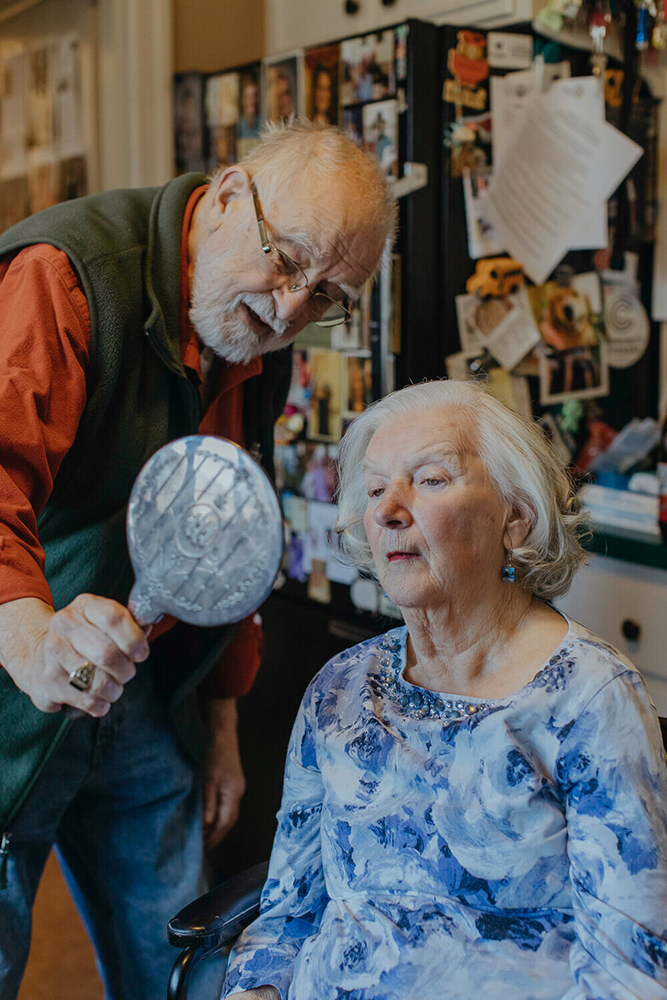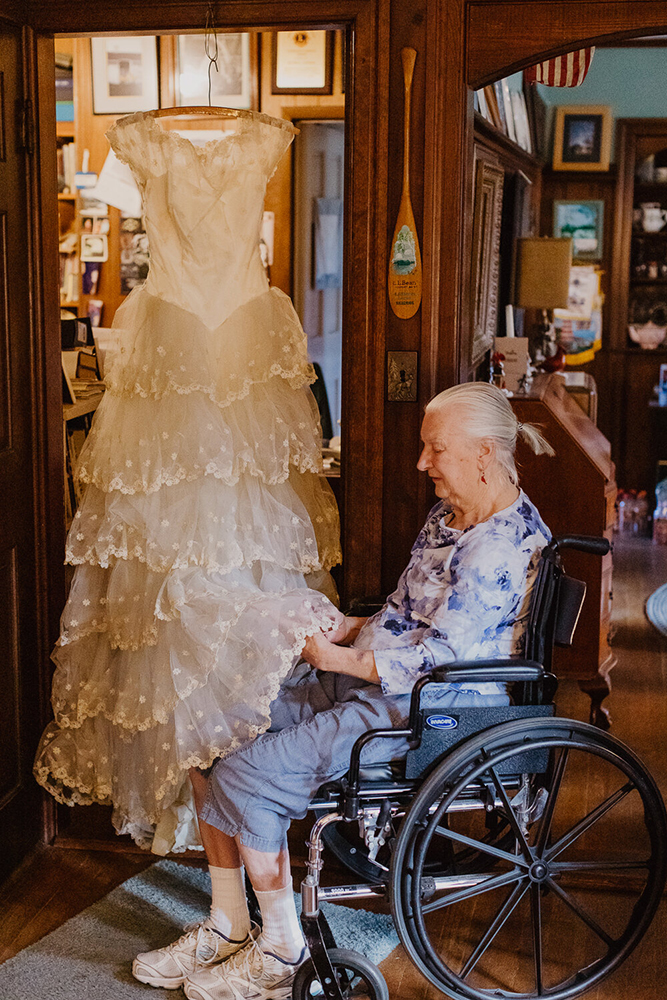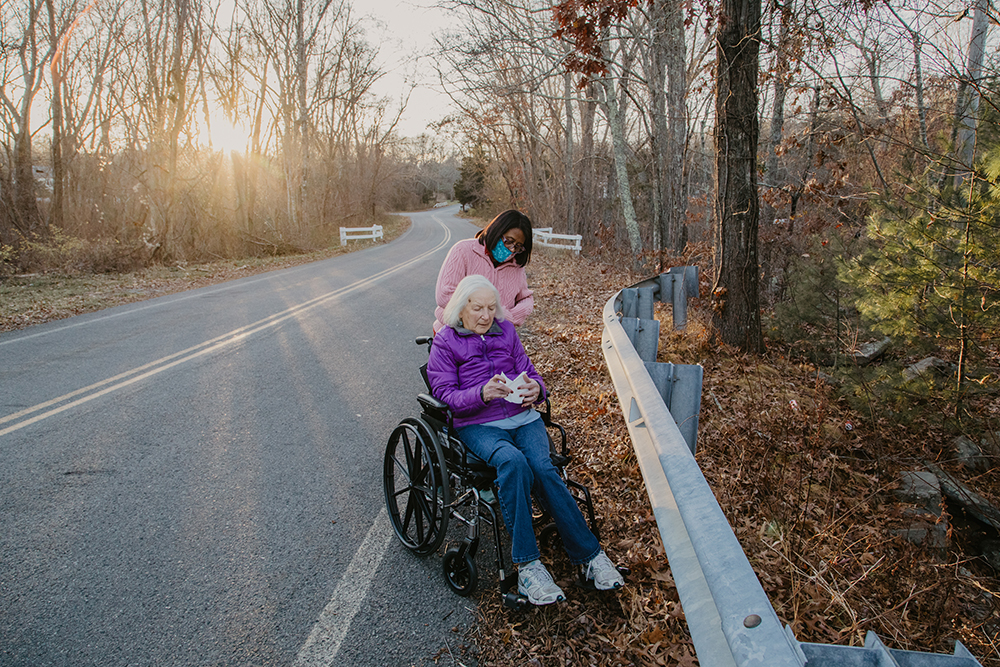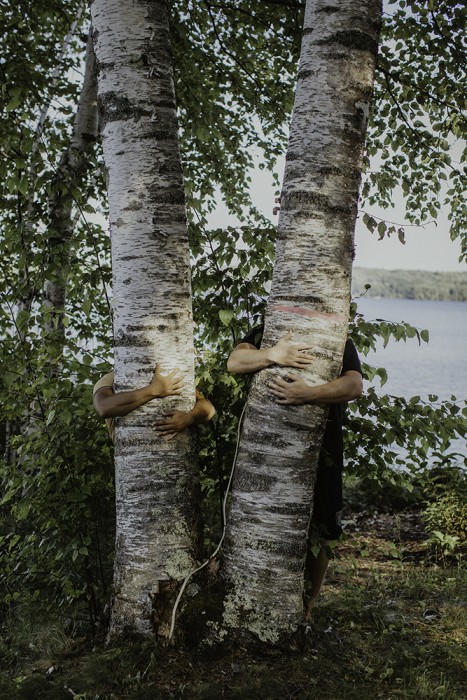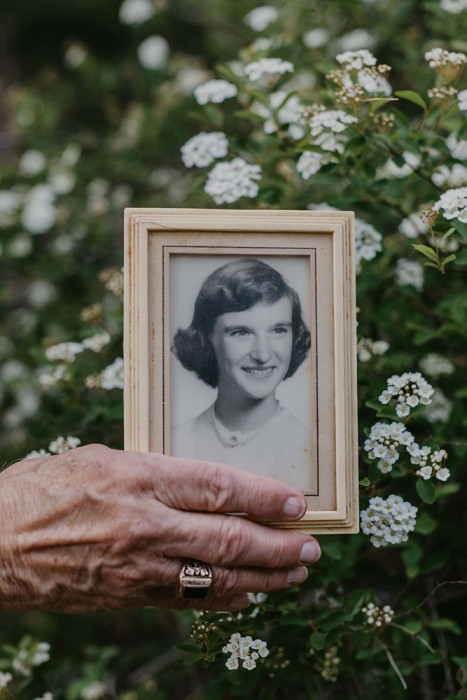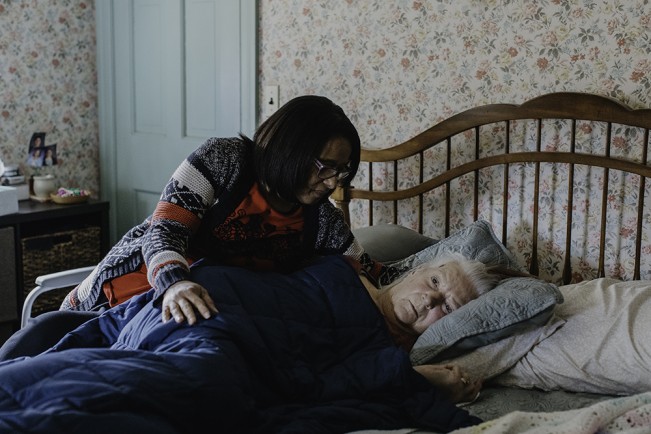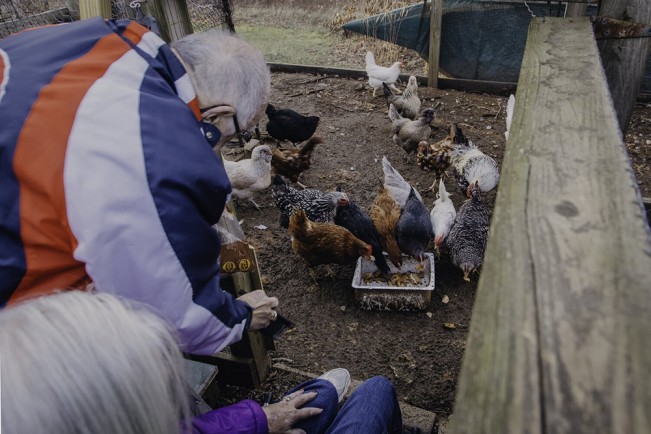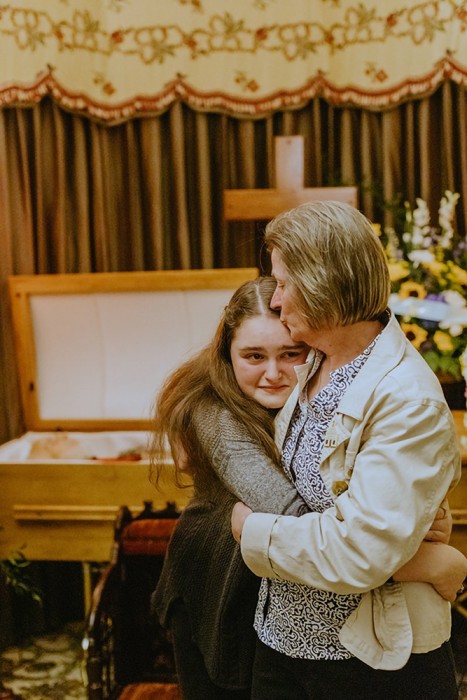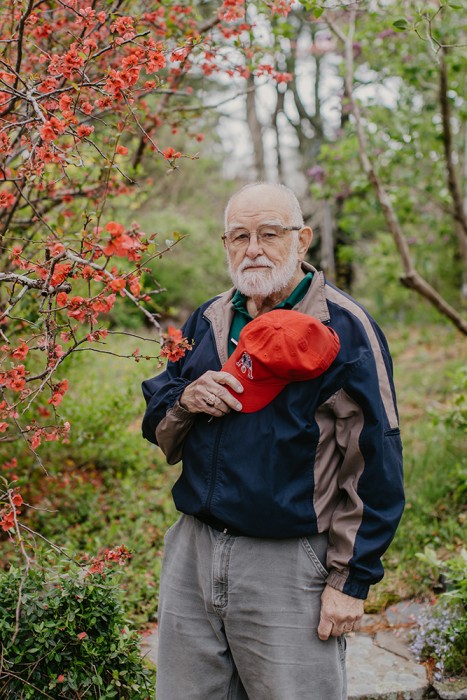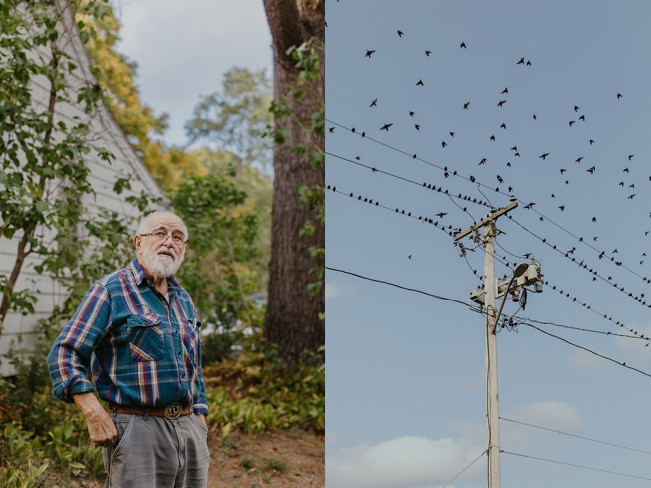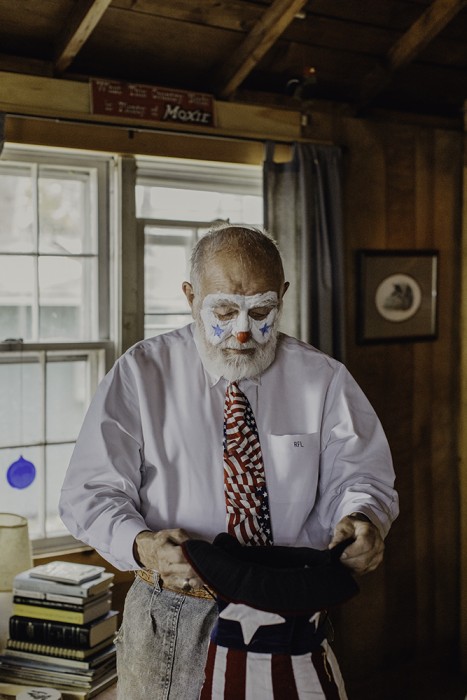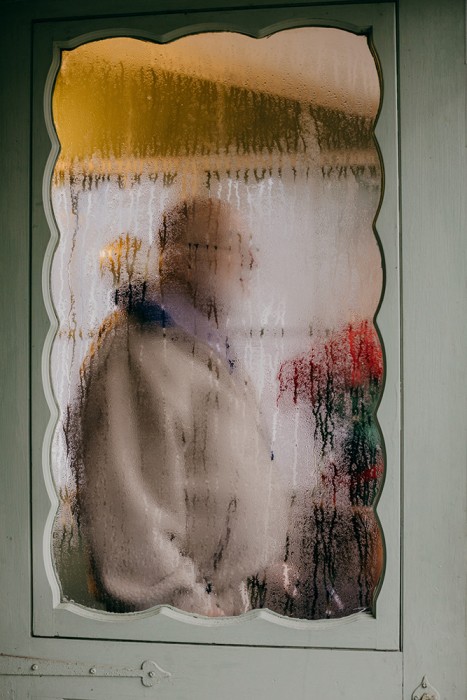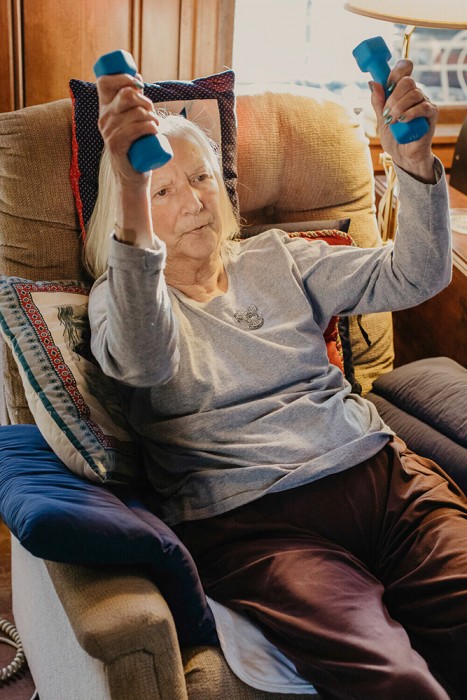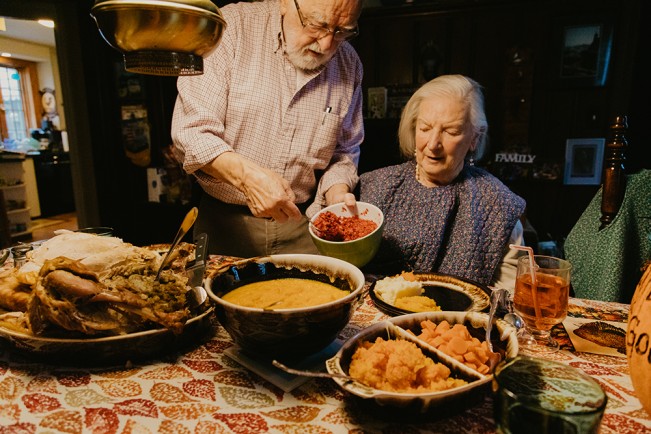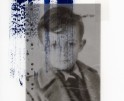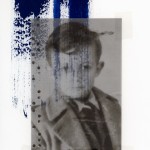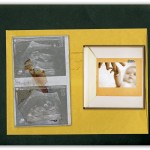Memory/Loss Series: Hannah Latham: Bring Me a Dream
Three of my grandparents had already passed away when I was born and my grandfather died when I was seven, so I never really got a chance to understand or truly know these significant family icons in a profound way. It’s an unfortunate thing that we begin to explore family histories as the clock is running out, often when it’s too late ask the important questions, understand a life lived, and see our loved ones separate and apart from the roles they are assigned as parents, grandparents, aunts and uncles. The pandemic allowed me to consider these quandaries as I realized that if I don’t tell my stories to my children, those stories will disappear.
I had the great pleasure of meeting Hannah Latham and her work at a recent portfolio review and was struck by the profound sensitivity she brings to her recent series, Bring Me A Dream, which focuses on the tragic decline of her paternal grandparents. Latham created Bring Me A Dream as her thesis project at Rhode Island School of Design,
Today I feature her work and this week Latham takes over as the editor of our Memory/Loss series, showcasing photographers who explore themes related to family, grief, aging, and caregiving. Inspired by her grandmother’s experience with Alzheimer’s, Memory/Loss features a series of photographers exploring similar themes. Many of the artists grapple with Alzheimer’s disease, in particular, using their cameras to tell intimately personal stories of their loved ones as their memories fade. The CDC estimates that in the United States alone, 5.8 million people will be affected with Alzheimer’s and other related dementias. That’s about 1 in 9 people, making it a tragically common experience for so many families. Moreover, because the disease is genetic and there is no known cure, many wonder if their genes hold the same fate. This collective of photographers from across the globe shed light on the reality of this terrible disease and the memories and loss associated with memory loss.
This series is organized by Hannah Latham in collaboration with Aline Smithson.
Visit the Alzheimer’s Association’s resources to learn more about the causes, treatments, and how to help.

©Hannah Latham, Greeting Mr. Rooster, This image is a recreation of a famous family photograph from the Rehoboth town anniversary party where my Grandpa decided to wear his farmer overalls and bring his rooster.
Hannah Latham is a recent graduate of Rhode Island School of Design’s Photography BFA program with a minor in race, gender, and sexuality studies. Her work investigates themes of memory, family, patriotism, and the environment. They take the form of cyanotypes, inkjet or gelatin silver prints. Based in Boston, MA, she is an assistant at Gallery Kayafas in SoWa.
Follow Hannah Latham on Instragram: @hlatham6
Bring Me a Dream
On warm summer afternoons in Maine, we used to play on Gram and Gramp’s dock and slip into the shallow water to look for clams. Collections of our findings would be lined up in our assorted beach buckets like treasure. If you swim out a little further from the shore, there’s a sizable sandy spot where you can spot the sharp shells glistening in the current. You have to be careful not to step on one, though, because sometimes they’ll cut your feet. Soon Gramp would come over to inspect what we gathered. Sometimes he’d pull out his pocketknife and slit one open for us to see, quickly sliding it into his mouth for us to react in horror.
We are only around for a fraction of our parents’ and grandparents’ lives. We will never truly know what it was like to grow up as they did or what it felt like for them to fall in love. The retelling of memories is our only way to access those remains. Sometimes photographs aid in their preservation, leaving clues from decades before. As I attempt to photograph memories from the past in the present tense, I find that places can embody these histories. I think about the pasture where Grandpa helped his cow give birth in front of the school bus. I visit the island where my grandparents experienced their budding romance. I sit in the same chair that Great Grandma used to sit in on Christmas. Each moment of generational nostalgia inevitably falls short in recording the impossible. They are constant reminders of our mortality, each metaphor a footnote in our memory during our limited time in this world.
In this ongoing series, I use my camera to cope with my grandparents’ lived realities as their health declines and their memories fade. I focus on elements of class and heritage to draw parallels between their experiences, each set two different stories of immigration at different time scales. In their attempts at fulfilling the American dream, I use their possessions and loved ones as evidence of their fruitful lives before this day in time. When it rains, it pours, and each new day is flooded with rituals and responsibilities. These practices are often taken on as a group by my family in their efforts to delay the day in which we say goodbye. Time is a cruel and honest friend. As we anticipate the loss of the eldest generation in my family, I question what our future holds. Do my genes hold the same fate? Will there be a next generation?
Posts on Lenscratch may not be reproduced without the permission of the Lenscratch staff and the photographer.
Recommended
-
Martin Stranka: All My StrangersDecember 14th, 2025
-
Interview with Maja Daniels: Gertrud, Natural Phenomena, and Alternative TimelinesNovember 16th, 2025
-
MG Vander Elst: SilencesOctober 21st, 2025
-
Photography Educator: Josh BirnbaumOctober 10th, 2025
-
Aiko Wakao Austin: What we inheritOctober 9th, 2025

